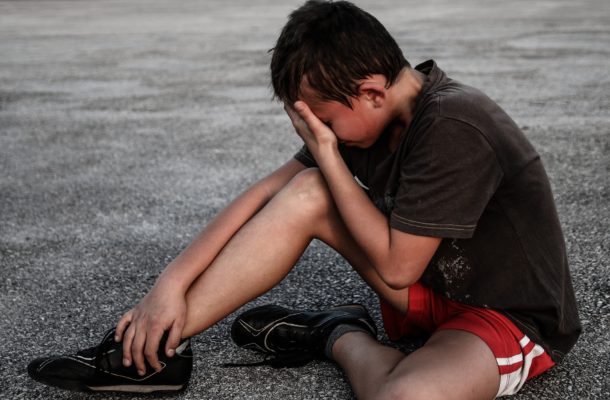Does early stress increase the likelihood of chronic pain?

The short answer is “it’s unclear”; but as a pediatric pain psychologist and researcher at Boston Children’s Hospital, I am currently looking to increase our understanding of this relationship.
Historically, going through certain stressful experiences in childhood – also known as Adverse Childhood Experiences [ACEs] such as abuse, neglect and a violent home environment – has been thought to play a role in the development of certain pain conditions in adulthood.
However, gaps in the research, including few studies in children and adolescents with pain or studies that follow people over time, have left the water a little murky.
Most studies on adult chronic pain have relied on asking adults to report on events that may have occurred decades ago, a method that is not always reliable. Until recently, few studies have examined the potential relationship between ACEs and chronic pain while people are still in childhood.
Increasing our understanding of these relationships in kids may serve to inform prevention and treatment practices for both youth and adults going forward. However, much research is still needed.
Through review of the current research we can see large overlap in the processes behind both ACEs and chronic pain.
One of the most widely accepted theories for how chronic pain develops is “central sensitization”, or increased sensitivity in the nervous system following any number of potential causes, for example injury or viral illness.
Separately, it has also been shown that exposure to significant life stress such as ACEs can increase and maintain high levels of certain stress hormones in the body such as cortisol. This consistent state of high alert can then lead to greater “wear and tear” on the nervous system.
This wear and tear, a process referred to as “allostatic load” is associated with an increased likelihood of individuals experiencing poorer general health, such as higher body-mass index and increased blood pressure, as well as certain chronic health concerns, potentially including chronic pain.
It is also widely known that both chronic pain and a history of ACEs or chronic stress are independently associated with increased symptoms of anxiety, depression, school dysfunction, and social issues in youth.
My current research begins to take a look at both of these concepts in the same group of people, which has not been done in the research to date. Compellingly, I found that over 80% of youth with chronic pain seeking treatment at an outpatient pain clinic report a history of at least one ACE in their lifetime – the most common being family dysfunction or parent/guardian separation or divorce – and approximately one quarter report experiencing 3 or more ACEs.
More importantly, I also found that those youth with 3 or more ACEs reported much higher symptoms of anxiety and depression and greater school-related impairment when compared to those youth with chronic pain without a history of ACEs.
I have also found that young-adults with juvenile-onset fibromyalgia report higher rates of psychological trauma – including sexual or physical abuse – than individuals without chronic pain. Clearly, there seems to be some links between these experiences. More research is needed to fully understand this, but preliminarily, I suspect that childhood adversities make youth more vulnerable to chronic pain.
While these findings are interesting, my research goals are only beginning. Currently, I am looking at how ACEs may relate to treatment outcomes in youth with chronic pain. I also just received grant funding – thanks, Boston Children’s Hospital! – to begin looking at the nervous system “wear and tear” or allostatic load known to occur following significant stress exposure in youth with chronic pain.
Although stressful experiences in childhood may be a significant factor in increasing sensitization of the nervous system and thus, pain, we need more evidence to know whether this is truly the case. As researchers and clinicians, we must recognize that chronic pain in youth is likely not caused directly by significant stress or trauma but instead may be an important piece to the puzzle.
Future investigations will continue to clarify this picture.
This article was published by Body in Mind.
Dr Sarah Nelson is a Staff Psychologist at Boston Children’s Hospital in the Department of Anesthesiology, Critical Care, and Pain Medicine, and an Instructor in Psychology in the Department of Psychiatry at Harvard Medical School. Dr. Nelson’s initial research area focused on childhood traumatic stress.














